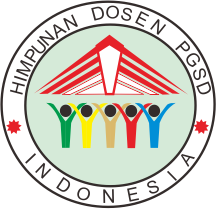Optimization of Library Service Management in Increasing Students' Reading Interest: Case Study at MI Muhammadiyah Paremono
DOI:
https://doi.org/10.30595/dinamika.v16i2.24086Keywords:
, Library Management, Teacher Training, Student Reading Interest, Basic Education, Literacy SkillsAbstract
School libraries play a crucial role in supporting the learning process and increasing students' reading interest, but in MI Muhammadiyah Paremono, library management is not optimal. This study aims to evaluate the effectiveness of library management training for teachers in improving knowledge, skills, and its impact on students' reading interest. Using a one group pre-test post-test research design, the subjects of the study consisted of 21 teachers who were given a Likert scale questionnaire before and after the training. The results of the analysis showed a significant increase in pre-test and post-test scores for knowledge (from 3.2 to 4.5), skills (from 3.1 to 4.4), and perceptions of students' reading interest (from 3.0 to 4.2), with p < 0.01. This training successfully improved teachers' competence in library management, which had positive implications for students' reading interest. This study underlines the importance of library management training for teachers to improve students' learning experiences and encourage a reading culture in schools. These findings provide significant contributions to the development of teaching methods and library management, as well as opening up opportunities for further research on the factors that influence students' reading interest.
References
[1] R. Todd and C. C. Kuhlthau, “Student learning through Ohio school libraries, Part 1: How effective school libraries help students,” Sch. Libr. Worldw., vol. 11, no. 1, pp. 63–88, 2005.
[2] D. Suhardi, “Peranan Manajemen Perpustakaan Sekolah Dalam Mendukung Tujuan Sekolah,” Edulib, vol. 1, no. 1, 2011.
[3] N. Hidayati, K. P. Sari, and I. Nugroho, “Faktor-Faktor yang Mempengaruhi Budaya Membaca di MI Muhammadiyah Danurejo,” AL-TARBIYAH J. Pendidik. (The Educ. Journal), vol. 33, no. 1, pp. 50–58, 2023.
[4] A. Alpian and H. Ruwaida, “Pengoptimalan Peran Perpustakaan Sekolah dalam Menumbuhkan Minat Baca Siswa di Sekolah Dasar,” J. Basicedu, vol. 6, no. 2, pp. 1610–1617, 2022.
[5] H. Hughes, H. Bozorgian, C. Allan, and M. Dicinoski, “School libraries, teacher-librarians and their contribution to student literacy development in Gold Coast schools,” 2013.
[6] F. I. F. Suryana, T. Lahera, and H. Windayana, “Pengelolaan Layanan Perpustakaan Sekolah Dalam Meningkatkan Minat Baca Siswa SD,” Nat. J. Kaji. dan Penelit. Pendidik. dan Pembelajaran, vol. 7, no. 1, pp. 1310–1317, 2022.
[7] A. Malekani and C. M. Mubofu, “Challenges of school libraries and quality education in Tanzania: A Review,” Libr. Philos. Pract., vol. 2334, pp. 1–4, 2019.
[8] M. M. Rahman, “Mengaktifkan Perpustakaan Sekolah,” Libr. J. Perpust., vol. 3, no. 2, pp. 181–199, 2015.
[9] L. Krolak, “The role of libraries in the creation of literate environments,” Int. J. Adult Lifelong Educ., vol. 4, no. 1/4, p. 5, 2006.
[10] R. Benard and F. Dulle, “Assessment of access and use of school library information resources by secondary schools students in Morogoro Municipality, Tanzania,” Libr. Philos. Pract., p. 0_1, 2014.
[11] M. Anshori, E. Elynawati, and A. Alfatchussadiqin, “Implementation of Library Management in Improving Excellent Service in Vocational High Schools,” Nazhruna J. Pendidik. Islam, vol. 5, no. 2, pp. 830–842, 2022.
[12] V. Sahfitri, “Prototype E-Katalog Dan Peminjaman Buku Perpustakaan Berbasis Mobile,” J. Sisfokom (Sistem Inf. Dan Komputer), vol. 8, no. 2, pp. 165–171, 2019.
[13] D. Hidayah and E. Hasanah, “Optimalisasi Pelaksanaan Layanan Perpustakaan Untuk Meningkatkan Literasi Siswa,” Acad. Educ. J., vol. 15, no. 2, pp. 1504–1514, 2024.
[14] I. Nugroho, K. Fatmawati, A. H. Fatikasari, A. N. Fitriana, L. F. Yulianto, and N. D. Aulia, “Pendampingan Implementasi Profil Pelajar Pancasila di SD Negeri Kadiluwih Kecamatan Salam,” SELAPARANG J. Pengabdi. Masy. Berkemajuan, vol. 7, no. 2, pp. 1425–1429, 2023.
[15] Q. Zhang, M. Goodman, and S. Xie, “Integrating library instruction into the course management system for a first-year engineering class: An evidence-based study measuring the effectiveness of blended learning on students’ information literacy levels,” Coll. Res. Libr., vol. 76, no. 7, pp. 934–958, 2015.
[16] M. Rintati, “Implementasi Gerakan Literasi Sekolah Sebagai Upaya Menumbuhkan Minat Baca Siswa di MI Istiqomah Sambas Purbalingga.” UIN Prof. KH Saifuddin Zuhri Purwokerto, 2022.
[17] E. Roesminingsih, “Layanan dan Fasilitas Perpustakaan Dalam Meningkatkan Minat Baca Peserta Didik,” Inspirasi Manaj. Pendidik., pp. 389–400, 2020.
[18] Y. Winoto, H. Hendrayani, and F. I. Septian, “Perpustakaan Sekolah dan Strategi Penguatan Literasi Informasi Para Siswa,” Literasi J. Bhs. dan Sastra Indones. serta Pembelajarannya, vol. 8, no. 1, pp. 136–151, 2024.
[19] S. Anjani, N. Dantes, and G. Artawan, “Pengaruh Implementasi Gerakan Literasi Sekolah Terhadap Minat Baca dan Kemampuan Membaca Pemahaman Siswa Kelas V SD Gugus II Kuta Utara,” PENDASI J. Pendidik. Dasar Indones., vol. 3, no. 2, pp. 74–83, 2019.
Downloads
Published
How to Cite
Issue
Section
License
Authors who publish with this journal agree to the following terms:
Authors retain copyright and grant the journal right of first publication with the work simultaneously licensed under a Creative Commons Attribution License that allows others to share the work with an acknowledgement of the work's authorship and initial publication in this journal.
Authors are able to enter into separate, additional contractual arrangements for the non-exclusive distribution of the journal's published version of the work (e.g., post it to an institutional repository or publish it in a book), with an acknowledgement of its initial publication in this journal.
Authors are permitted and encouraged to post their work online (e.g., in institutional repositories or on their website) prior to and during the submission process, as it can lead to productive exchanges, as well as earlier and greater citation of published work (See The Effect of Open Access).

Dinamika Jurnal Ilmiah Pendidikan Dasar is licensed under a Creative Commons Attribution 4.0 International License.













